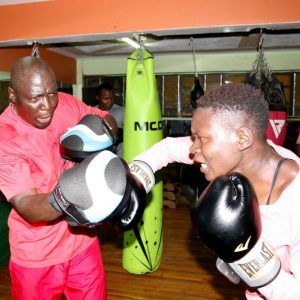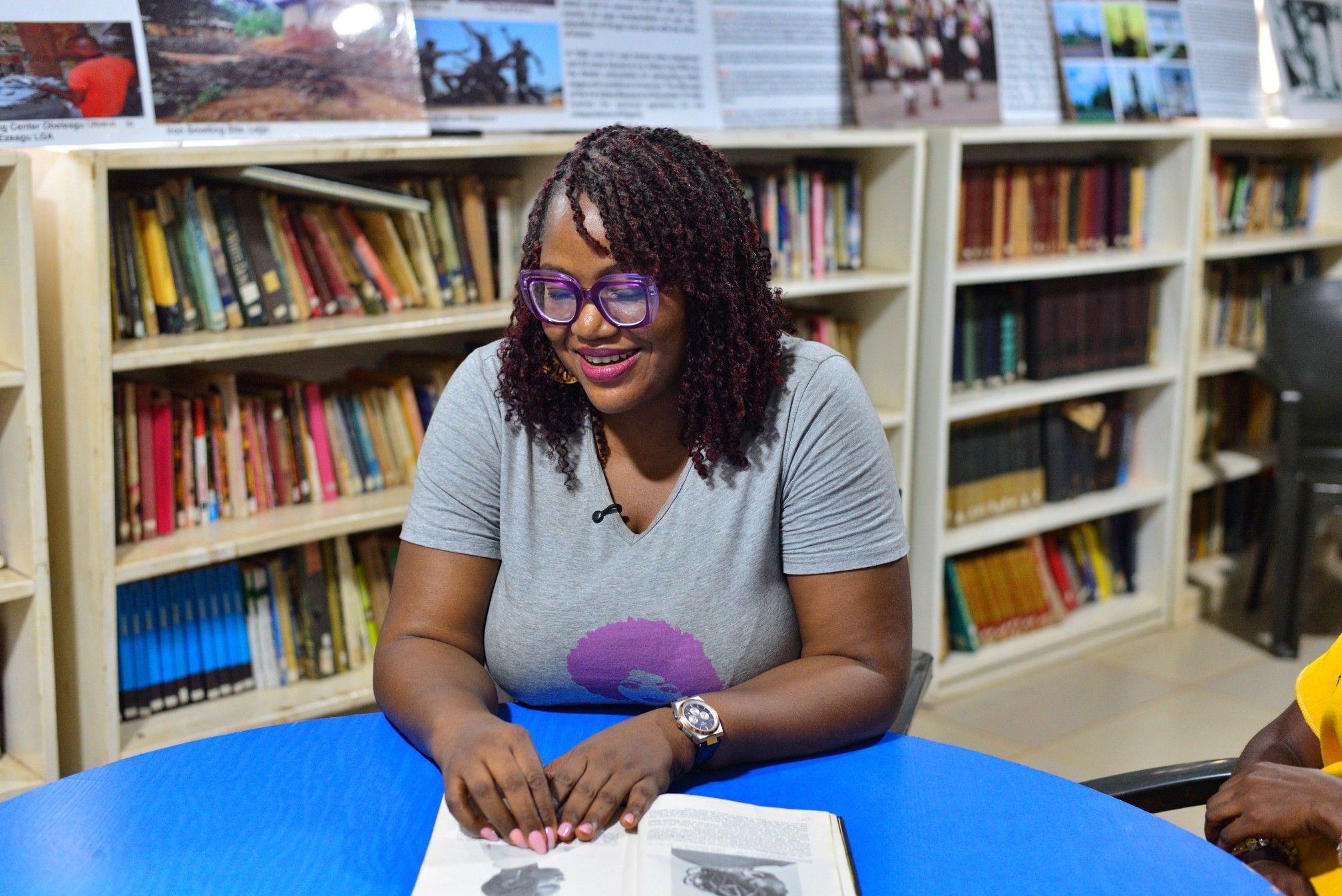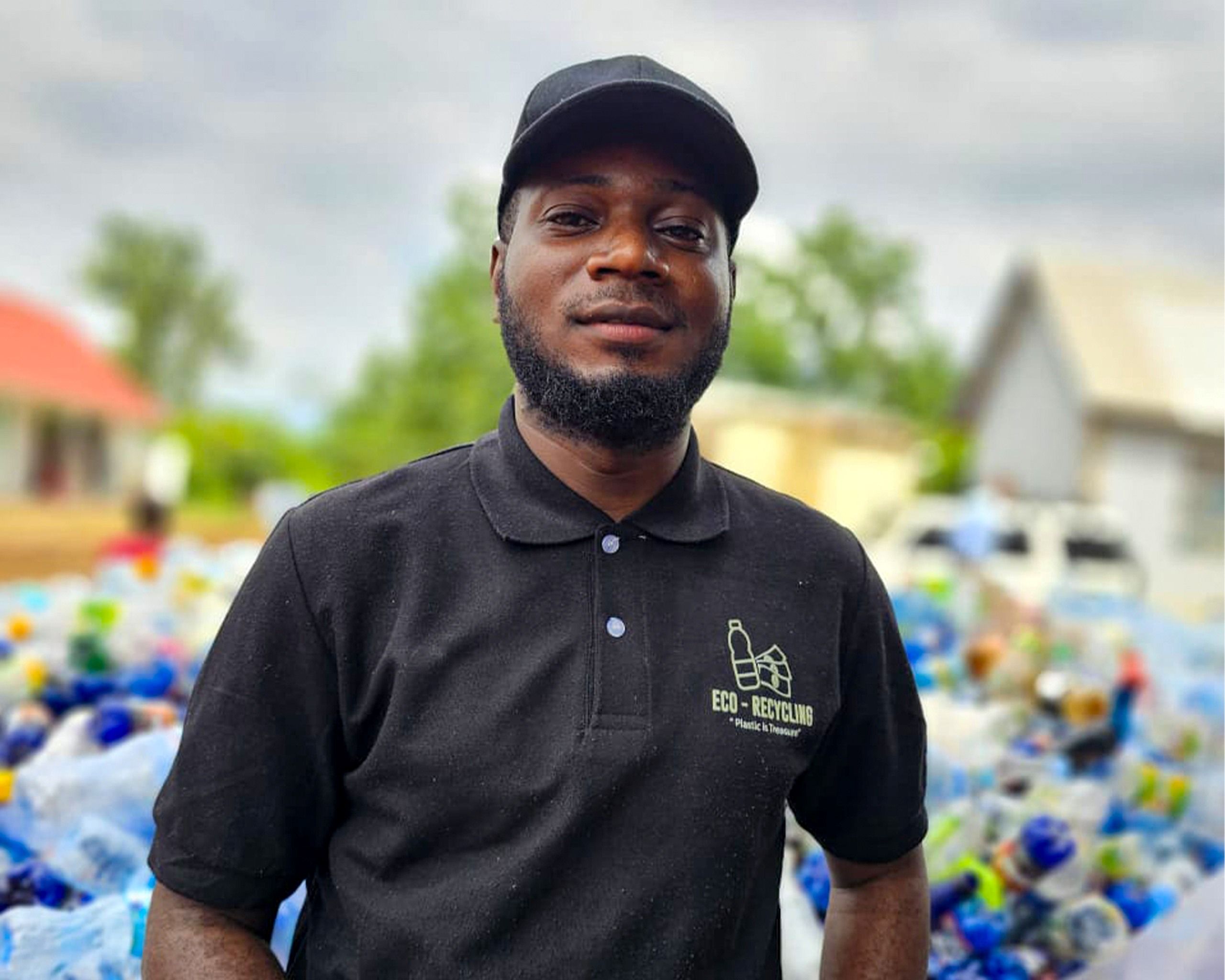In a crime-scarred neighbourhood, former gang members have turned to boxing and are now punching their way to a fresh start in life. They are looking to be role models, the vanguard of a transformational peace drive that also rescues youths from the dark alleyways of crime. Could this be redemption?
By Florence Ndung’u, bird
To many people, photo albums are a personal reference of the past that evoke fond memories of places and times spent with family and friends.
But for John Ochieng, famously known as ‘Chair’, a former gangster turned boxer, flipping the pages of his album triggers traumatic memories. Many of the young men in the pictures are no longer alive.
Growing up in Githurai, an area in the northeast of Nairobi that for decades was renowned for its criminal activities, life threw few options Ochieng’s way. Without a decent education, the allure of crime became hard to resist.
To survive the anxieties of their deprived existence, Ochieng and his peers formed gangs and spent most of their early years raining terror down on the residents of Githurai, endorsing the areas’s notoriety in the 1980’s, 90’s and early 2000’s as one of the city’s most dangerous places.
“Growing up in Githurai was not easy. There was a lot of drugs and crime,” Ochieng recalled, during an interview at the Thailand Boxing Club.
Before 1998, ‘Chair’ and his friends used their boxing skills both to survive and to perpetrate violence. Today, they say they are using the same tool to right the wrongs they visited upon the community.
“It was mainly used for defence and causing chaos in Githurai,” Ochieng narrated, adding that identifying with the gangs and engaging in criminal activities was his only option, if he wanted to stay alive.
Joining our ‘big brothers’ was the only way of survival,” attested Victor Kubasu, another reformed former gang member and currently an admin in the Kiambu County Governor’s Office.
According to Kubasu, while many youths would have loved to go to school, there were no role models and many fell easily to the allure of crime as a way of life.
“The people who came before us were not good role models. We used their system to fit in,” he said.
At the time, the Kenya Police Force had formed several units to neutralise rising crime in the city. The Flying Squad, the “Kwekwe (Weeds)” and the Eagle Squad are today blamed for extrajudicial killings of hundreds of suspected gangsters after the units were brought in to neutralise the gangs.
The Githurai bus stop was the centre of much of the action. For decades the stop has served as a starting point for young men, many arriving in the city to take up new lives, others turning to crime and harassing passengers.
It is also, for many entering the job market, an opportune transition stage, offering opportunities for small businesses as well as employment at the hundreds of informal kiosks that line the streets in the area. It is also here that young men earn a living by directing passengers into the waiting vehicles.
For Chair and his circle of friends, the case was no different. There was one problem, however. The stage was manned by hardcore criminals, who lured teens like him into crime.
“We had to follow in their footsteps to fit in and work at the stage (bus stop). You were either part of the system or became their prey,’’ narrated Ochieng.
In 1996, another illegal group rose in Githurai - the dreaded Mungiki - which is said to have been at the heart of many of the atrocities committed in the 2007/08 post-election violence in which more than 1,000 people were killed, thousands displaced and property worth millions of shillings destroyed.
The new outfit took over the stage, displacing the Kona Mbaya gang that Ochieng belonged to, on the pretext that it was eliminating crime from the stage and the neighbourhood in general.
This saw the community rally their support behind the Mungiki, forcing the Kona Mbaya gang to retreat.
For two years Chair and his friends had nowhere to turn to, or make a living, leading to one of the fiercest gang battles ever witnessed in Githurai.
“I led the Kona Mbaya gang in defeating the Mungiki. However, to continue working at the stage, we needed society to accept us. We had to change our ways,’’ Ochieng said.
Left with no choice, Ochieng would start weeding out the gangs who refused to embrace change, all in a bid to win the trust of the community and authorities.
“We took it upon ourselves to arrest those committing crime and taking them to the police station,’’ he said.
Romantic relationships between men and women in Githurai also offered some protection to families whose daughters were affiliated with the gangs.
Ochieng met his wife, Elizabeth, with whom they have two girls, in 1999. At this time, crime was reducing and some people like Kubasu and Ochieng were reforming, thanks in part to the government crackdown against the gangs. But gang leaders like Ochieng still offered considerable protection.
“For a girl to be safe, you had to date one of the gang members. I had no choice but to become Chair’s wife,’’ said Elizabeth.
Although her parents were against the relationship, to Elizabeth, the union offered protection to her family, particularly from those who chose not reform and instead joined other gangs in areas like Dandora and Kibera.
Crime - and punishment - also spiralled when some unreformed members of the Kona Mbaya gang were introduced to guns. Most of them died by the gun, when undercover “killer squads” launched an offensive against them.
“It was so painful to lose our friends. One minute you are with someone, the next minute, they are gone,” Akubasu said.
As this was unfolding, Ochieng met a boxing coach and his life transformed. He took his boxing to a very high level and later formed the Thailand Boxing Club.
Today, Ochieng spends three days a week at the Githurai Social Hall training upcoming boxers. As a result, many school-going children are kept away from social ills, through training and sparring tournaments.
“The first thing we do is to instil discipline in them when they join training. When they get here they respect their coaches. They love each other too. We tell them if they engage in crime out there, we cannot be friends. We have former boxers who are now employed in police forces and in parastatals. That is very encouraging to the young men and women,’’ Timothy Oketch, boxing coach.
“Chair has been very consistent. He has helped many school-going kids keep busy. I have known him for some time and it’s hard to believe he is a reformed criminal,” Jura adds.
The real transformation is seen in the impact Ochieng has made in his community through training and boxing tournaments.
Robert Gachohi Ng’ang’a is a 20-year old boxer, born and bred in Githurai. He was introduced to the sport at the age of 12.
He is among the few young men and women benefiting from the Mtaani Impact Project founded by Ochieng.
The programme aims to give the youth an opportunity to nurture their talents. “If it was not for boxing, I would have ended up in the bad company. The sport has taught me to be disciplined,” said Robert.
When Ochieng and two other reformed gang members became devout Christians and were “saved”, even his wife Elizabeth was shocked.. She said she laughed at him the day he told her, “nimeokoka” (which translates loosely as “I am saved”).
Ochieng now serves as an assistant pastor at Victory World Outreach Kenya Church in Githurai 45.
Residents of Githurai are, however, cautious of the ability for the former gangsters to affect lasting change.
“A leopard never changes its stripes. It’s very difficult to believe that a known criminal gang member has changed his or her ways. They have to prove themselves over time for me to trust them‘’ said one resident of Githurai (name withheld), sentiments that are echoed by a business owner in the area (name also withheld).
“If they reform we are happy for them, but there is always fear that they might go back to doing the same things. We are still scared of them even if they say they have totally changed. We have to wait and see if they keep their word,’’ the business owner said.
He asserts that sports in and of itself is not enough to clean up years of crime in his neighbourhood.
“Sports plays an important role in helping young people keep off crime and drug abuse. However, is it sustainable? Can it be an alternative source of livelihood? I don’t think so. Even if they train and go back home to find no food, they will be tempted to go back to their evil ways. Grassroots structures must be put in place and stakeholders must work harder to elevate the state of boxing and sports in general,’’ said the resident.
However, both Kubasu and Ochieng offer a different point of view.
“We have young men who have gone through boxing and are now doing well. Many have been recruited in the military, police force,’’ Kubasu said.
“Change takes time... For some, it is a process but at the end of it all we achieve the desired result,’’ Ochieng said.
From the busy gym at the Thailand Boxing Club, it would appear that there are plenty of young men willing to prove him right.
**This story has been created from extracts of a video project being developed by the author.**
bird
You will also love: Peter “Sharvin” Njoroge on His Music Career Marred With Family Fall-Outs, Hard Drugs, Prison, and Finally Sweet Redemption





